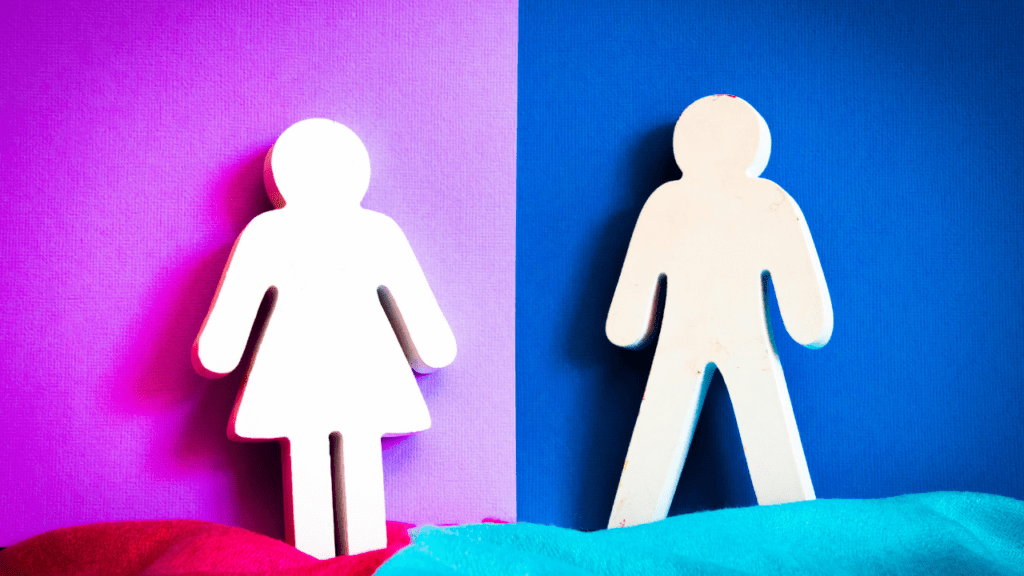In the field of addiction treatment, one size does not fit all. Recognizing the unique needs and experiences of different demographics is crucial for providing effective care. One of the most significant factors influencing addiction development, treatment needs, and recovery processes is gender. Understanding and addressing these gender-specific aspects can greatly enhance the effectiveness of addiction treatment and support long-term recovery.
The Influence of Gender on Addiction
Gender plays a significant role in how individuals experience addiction, from the initial development of substance use disorders to the challenges faced in recovery. These differences stem from a complex interplay of biological, psychological, and social factors:
Biological Factors
- Metabolism: Women typically have a higher body fat percentage and lower body water content than men, affecting how their bodies process substances.
- Hormones: Hormonal fluctuations in women can influence drug cravings and the risk of relapse.
- Brain Chemistry: Differences in brain structure and function between men and women can affect addiction susceptibility and treatment response.
Psychological Factors
- Mental Health: Women are more likely to experience certain mental health disorders, such as depression and anxiety, which can co-occur with substance use disorders.
- Trauma: Women are more likely to have experienced sexual trauma or intimate partner violence, which can contribute to substance use.
- Self-Esteem: Men and women may struggle with different aspects of self-esteem and self-image in relation to their substance use.
Social Factors
- Stigma: Women often face greater social stigma related to substance use, which can be a barrier to seeking treatment.
- Caregiving Responsibilities: Women are more likely to be primary caregivers, which can complicate treatment engagement and recovery.
- Social Pressure: Men may face different social pressures related to substance use, such as expectations of heavy drinking in social settings.

Unique Challenges and Needs in Treatment
Recognizing these gender differences is crucial for tailoring effective treatment approaches. Some of the unique challenges and needs include:
For Women
- Addressing trauma and past abuse
- Managing co-occurring mental health disorders
- Overcoming shame and stigma
- Balancing treatment with family responsibilities
- Addressing body image and eating disorders
- Pregnancy and parenting concerns
For Men
- Overcoming societal expectations of masculinity
- Addressing aggression and anger management
- Developing emotional awareness and expression
- Addressing sexual health concerns
- Managing work-related stress and expectations
Gender-Specific Treatment Strategies
To address these unique needs, many treatment centers, including Destination Hope, offer gender-specific programs. These approaches can include:
Single-Gender Group Therapy
Gender-specific group therapy sessions provide a safe space for individuals to discuss sensitive issues without the potential discomfort or distractions of mixed-gender groups. This can lead to more open and honest communication, especially when addressing gender-specific trauma or experiences.
Trauma-Informed Care
Recognizing the high prevalence of trauma, particularly among women with substance use disorders, trauma-informed care is crucial. This approach involves understanding, recognizing, and responding to the effects of all types of trauma.
Addressing Gender-Specific Mental Health Issues
Treatment programs should be equipped to address mental health issues that are more prevalent in each gender. For women, this might include a focus on depression, anxiety, and eating disorders. For men, programs might emphasize anger management and stress reduction techniques.
Family and Relationship Counseling
Addressing family dynamics and relationship issues is crucial for both genders but may take different forms. For women, this might include a focus on parenting skills and healing family relationships. For men, it might involve addressing issues of intimacy and communication in partnerships.
Tailored Relapse Prevention Planning
Relapse prevention strategies should take into account gender-specific triggers and coping mechanisms. For example, women might need strategies to manage hormonal fluctuations that can affect cravings, while men might need techniques to resist peer pressure in social drinking situations.

Destination Hope’s Gender-Specific Programs
At Destination Hope, we recognize the importance of gender-specific treatment in improving outcomes and supporting long-term recovery. Our gender-specific programs are designed to address the unique needs of men and women in addiction treatment:
Women’s Program
- Trauma-informed therapy addressing past abuse and PTSD
- Focus on self-esteem and body image issues
- Parenting skills and family reunification support
- Holistic therapies including art therapy and mindfulness practices
- Addressing co-occurring disorders common in women
Men’s Program
- Emphasis on emotional intelligence and healthy expression of feelings
- Addressing issues of masculinity and societal expectations
- Anger management and stress reduction techniques
- Life skills development
- Focus on building healthy relationships and communication skills
Benefits of Gender-Specific Treatment
Gender-specific treatment approaches offer numerous benefits:
- Increased Comfort: Clients often feel more at ease discussing sensitive issues in single-gender settings.
- Targeted Interventions: Treatment can focus on issues most relevant to each gender.
- Peer Support: Clients can relate to and learn from others with similar experiences.
- Reduced Distractions: Eliminating potential romantic or sexual tensions allows for focus on recovery.
- Improved Outcomes: Addressing gender-specific needs can lead to better treatment engagement and long-term recovery success.
Gender-specific approaches to addiction treatment recognize that men and women often walk different paths in their journey to recovery. By tailoring treatment to address the unique biological, psychological, and social factors influencing addiction in each gender, we can provide more effective, compassionate care.
At Destination Hope, our gender-specific programs are designed to meet these unique needs, providing a supportive environment where individuals can address their substance use disorders alongside peers who truly understand their experiences. Our comprehensive approach addresses not just the addiction, but the whole person, setting the foundation for lasting recovery and improved quality of life.
Take the first step towards a tailored recovery journey. Call Destination Hope today at 888-989-1479 to learn more about our gender-specific programs and how we can support your path to lasting recovery.




